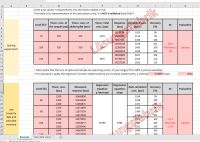LOD: What’s behind the "3.3" or: the underlying statistics

If you ever wondered why the limit of detection (LOD) is actually calculated using the formula
LOD = 3.3 x standard deviation / slopecalibration curve
and where the 3.3 actually comes from, this article may shed some light on the subject.



